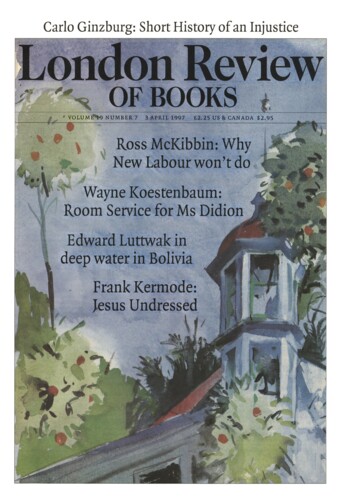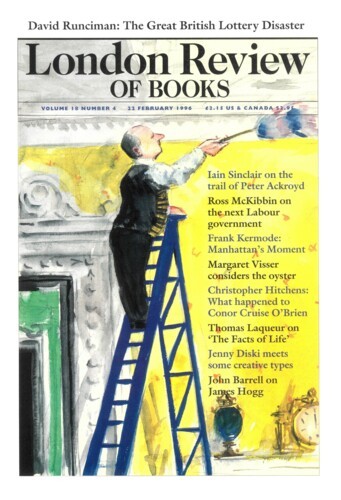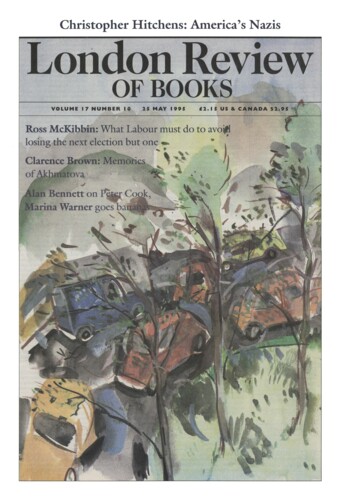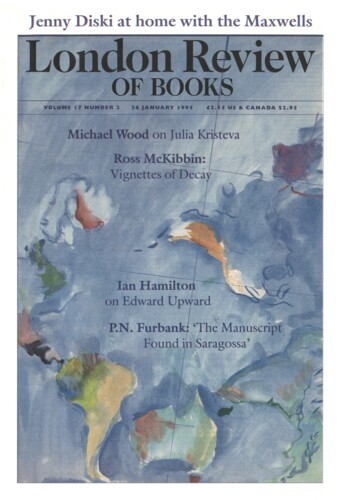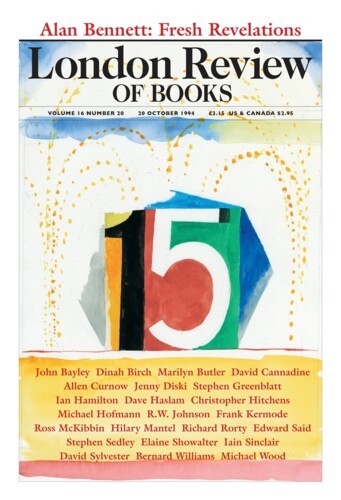Very Old Labour
Ross McKibbin, 3 April 1997
Unless the electors intend to play an even more fiendish trick on Labour than they did at the last election, which is not impossible, the Wirral by-election does suggest that Labour will win some sort of majority in May. The size of the victory, however, matters less than the nature of the Party – New Labour – which seems likely to win it. And we must accept the fact that it really is new. When Tony Blair assures us of that he is not, as the Tories insist, merely pretending. Much of this ‘renewal’ had, of course, been achieved by Neil Kinnock and John Smith, while the numerical and political decline of the unions, together with a change in the composition of the electorate and the Labour Party’s membership, made ‘renewal’ much easier and, at least to some extent, necessary. Nevertheless, Mr Blair has carried it deeper and further than Mr Kinnock or Mr Smith could or would have done. They were still attached to the basic ideology and structure of Old Labour while, for all practical purposes, Tony Blair is now attached to neither. No one could have predicted in 1979 or 1983 that the historic Labour Party would have disappeared so fast, and probably for ever.’
